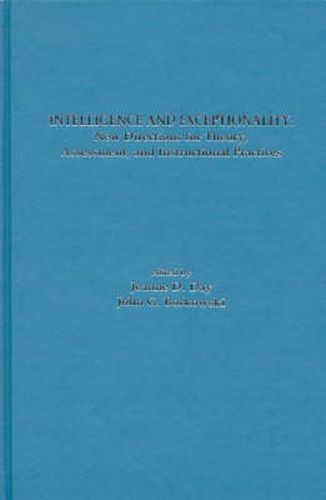Readings Newsletter
Become a Readings Member to make your shopping experience even easier.
Sign in or sign up for free!
You’re not far away from qualifying for FREE standard shipping within Australia
You’ve qualified for FREE standard shipping within Australia
The cart is loading…






This volume, much like its companion text Cognition in Special Children, focuses on intellectual and motivational processes that characterize individuals at the extremes of human talent. The aim is to understand more about exceptional children: how they are like and unlike other children, and what intellectual and motivational processes best explain their delayed or accelerated performance. The link between exceptionality and intelligence is examined from three perspectives: the role of intelligence theories and tests in the diagnosis and classification of retarded, learning disabled, and gifted children and adolescents; the use of intelligence theory to guide educational programming; and the importance of special populations for constructing, revising, and assessing new models of intelligence.
$9.00 standard shipping within Australia
FREE standard shipping within Australia for orders over $100.00
Express & International shipping calculated at checkout
This volume, much like its companion text Cognition in Special Children, focuses on intellectual and motivational processes that characterize individuals at the extremes of human talent. The aim is to understand more about exceptional children: how they are like and unlike other children, and what intellectual and motivational processes best explain their delayed or accelerated performance. The link between exceptionality and intelligence is examined from three perspectives: the role of intelligence theories and tests in the diagnosis and classification of retarded, learning disabled, and gifted children and adolescents; the use of intelligence theory to guide educational programming; and the importance of special populations for constructing, revising, and assessing new models of intelligence.